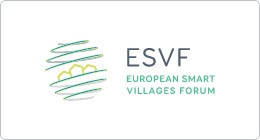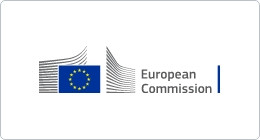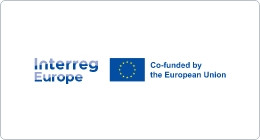Incoterms
Which Incoterms are there?
There are a total of eleven different Incoterms, which are divided into three categories. The first category includes the four Incoterms for maritime and inland trade, the second category contains the three Incoterms for air transport and finally the third category contains the four Incoterms for road or rail transport. Incoterms (International Commercial Terms) are an international set of commercial terms that determine how the costs and responsibilities of buying and selling goods are divided between the buyer and seller. They were originally issued in 1936 by the International Chamber of Commerce Committee. The current version of the Incoterms, known as Incoterms 2020, was published on January 10, 2020 and contains 11 different clauses. The 11 Incoterms can be divided into 4 groups. Each of these term classes has specific instructions about the costs, responsibilities and risks of the seller and the buyer:
INCOTERMS rules are grouped into 4 categories:
EXW – Ex Works
The only term where the seller / exporter makes the good available at his own premises to the buyer / importer. The seller must have its goods ready for collection at a specified location, but does not provide any other services.
FCA – Free Carrier
FAS – Free Alongside Ship
FOB – Free On Board
Terms where the seller / exporter is responsible to deliver the goods to a carrier named by the buyer. The seller must deliver its goods to a carrier, freight forwarder or other means of transport at a specified location.
CFR – Cost and Freight
CIF – Cost, Insurance and Freight
CPT – Carriage Paid To
CIP – Carriage and Insurance Paid to
Terms where the seller / exporter / manufacturer is responsible for contracting and paying for carriage of the goods, but not responsible for additional costs or risk of loss or damage to the goods once they have been shipped. The seller is responsible for the transportation of his goods to the destination.
DPU – Delivered at Place Unloaded
DAP – Delivered At Place
DDP – Delivered Duty Paid
DDU – Delivered Duty Unpaid
DAF – Delivery At Frontier
DES – Delivered Ex Ship
DEQ – Delivered Ex Quay
Terms where the seller / exporter / manufacturer is responsible for all costs and risks associated with bringing the goods to the named place of destination. The Seller shall bear all transportation, insurance and customs clearance costs to the Buyer’s destination.
It is important to note that each country has its own legal requirements when it comes to importing/exporting goods. Therefore, before buying or selling products abroad, one should make sure that one has all the necessary information about the respective legal system. In addition, one should also ensure that one has considered all relevant fees and taxes before entering into a contract.
EXW (Ex Works)
The EXW Incoterm is a very simple way to transfer ownership of a product. With this Incoterm, the seller transfers ownership of the goods to the buyer as soon as they are ready to be picked up at the seller’s storage location. However, the buyer bears all transportation and insurance costs for moving the goods from the seller’s storage location to the destination.
FOB (Free On Board)
This Incoterm is often used for sea transports and means that the seller delivers the goods up to the board of the ship and takes over the costs of the transport, but from here on the buyer’s responsibility starts.
CIF (Cost Insurance and Freight)
With this Incoterm, both the buyer and the seller bear some assumption of risk: the buyer is responsible for selecting and paying the shipping company and bears all risks associated with the transport; the seller is responsible for organizing the transport as well as ensuring that the goods are fully insured.
DDU (Delivered Duty Unpaid)
With this Incoterm, the seller assumes the risk and cost of transportation, but not the duties or taxes that may be imposed by the destination. The duties or taxes are paid by the consignee and must be paid upon delivery.
DDP (Delivered Duty Paid)
The DDP-Incoterm offers the greatest possible service and convenience for the buyer: the seller organizes the shipment, insures the goods and also takes care of any customs duties or taxes incurred in the destination country. Therefore, the buyer does not have to bear any additional financial burden to collect his goods after delivery on site. Companies with international operations in particular should therefore definitely familiarize themselves with the various Incoterms in order to be able to conduct their commercial transactions in a legally secure manner. It is also advisable to consult a specialist lawyer or legal advisor in order to clear up uncertainties in advance and prevent misunderstandings – especially with regard to global business relationships and international contract drafting.
Source: https://www.munich-business-school.de/en/l/business-studies-dictionary/incoterms
OCEAN FREIGHT TERMS
- ABI – Automated Broker Interface
- AES – Automated Export System: The US Customs and Border Protection (CBP) system for electronic filing of Shipper’s Export Declaration (SED) and ocean manifest information directly to CBP.
- AMS – Automated Manifest System: A part’s of Customs’ Automated Commercial System (ACS), controls imported merchandise from the time a carrier’s cargo manifest is electronically transmitted to Customs.
- BAF – Bunker Adjustment Factor: An adjustment in shipping charges to offset price fluctuations in the cost of bunker fuel
- BL – Bill of Lading
- BREAK – The movement by ocean of packaged goods that are not containerized
- BSC – Bunker Surcharge
- BULK – Homogenous cargo that is stowed loose in the hold of a ship and is not enclosed in a shipping container or box, bale, bag or cast
- CAF – Currency Adjustment Factor
- CFS – Container Freight Station
- COURIER – Expedited, personalized package and document handling
- CSC – Container Service Charge
- CY/CY – Container Yard to Container Yard.
- DTD – Door to Door
- DTP – Door to Port
- EDI – Electronic Data Interchange
- ETA – Estimated time of Arrival
- ETD – Estimated time of Departure
- EX DEC – Shipper’s Export Declaration
- FAF – Fuel Adjustment Factor
- FAK – Fit All Kinds
- FCL – Full Container Load
- FSC – Fuel surcharge
- GRI – General Rate Increase
- GRR – General Rate Restoration
- HBL – House Bill of Lading
- IFC – Importer Security Filing (10+2 rule) and additional Carrier Requirements Information
- LCL – Less than Container Load
- NVOCC – Non-Vessel Operating Common Carrier
- OTI – Ocean Transportation Intermediary
- PPS – Pier Pass Surcharge
- PSS/PSA – Peak Season surcharge / Peak Season Adjustment
- PTP – Port to Port
- TEU – Twenty-foot equivalent unit. Used to measure a vessel’s capacity.
- THC – Terminal Handling Charges
- TRC – Terminal Receiving Charges
Source:
https://www.ilscompany.com/incoterms/
https://www.ilscompany.com/incoterms-2022/





